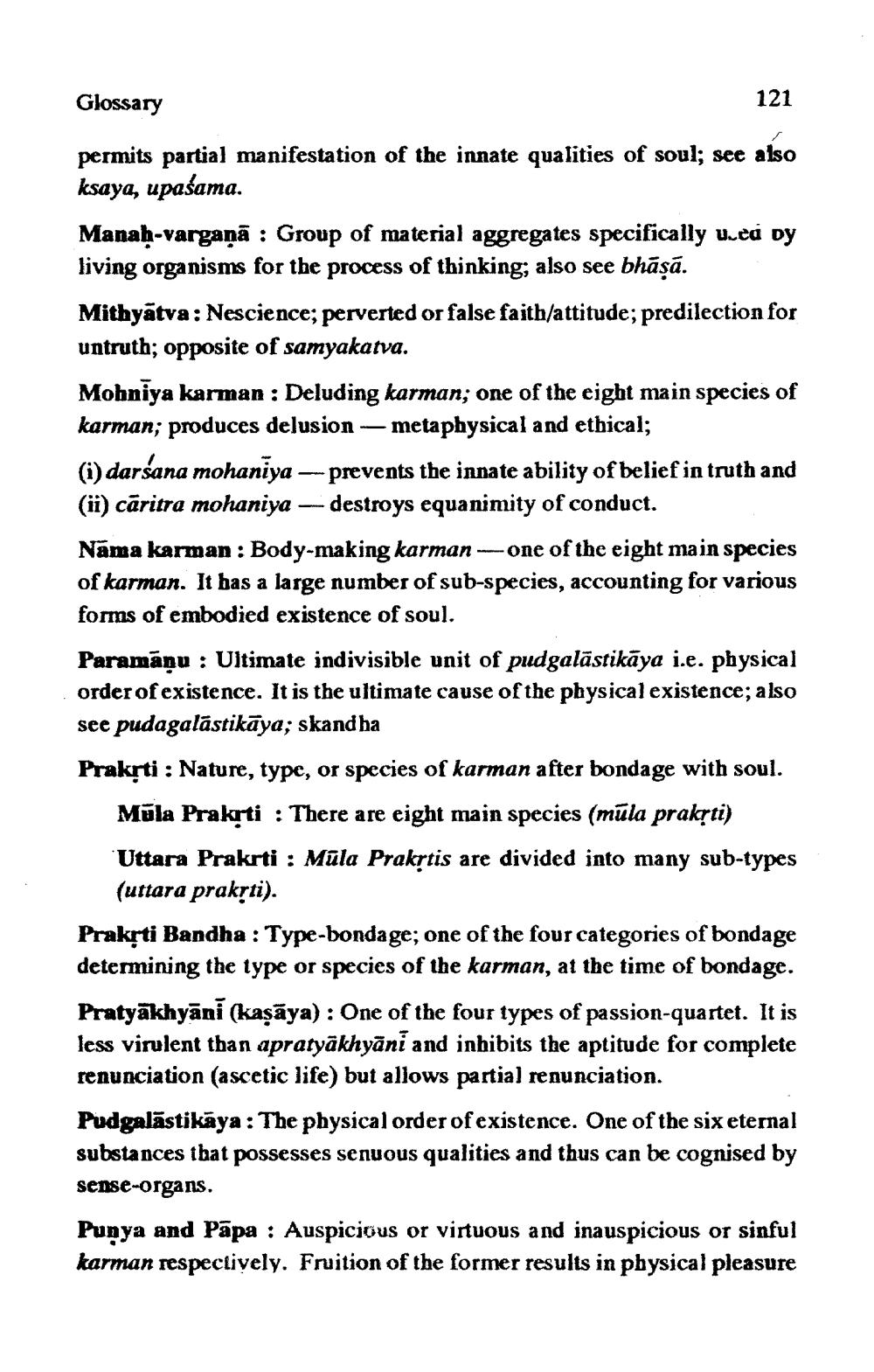________________
Glossary
121 permits partial manifestation of the innate qualities of soul; see also ksaya, upašama. Manah-vargaņā : Group of material aggregates specifically uued by living organisms for the process of thinking; also see bhāṣā. Mithyātva: Nescience; perverted or false faith/attitude; predilection for untruth; opposite of samyakatva. Mohniya karman: Deluding karman; one of the eight main species of karman; produces delusion — metaphysical and ethical; (i) darsana mohaniya --- prevents the innate ability of belief in truth and (ii) caritra mohaniya - destroys equanimity of conduct. Nāma karman : Body-making karman --- one of the eight main species of karman. It has a large number of sub-species, accounting for various forms of embodied existence of soul. Paramānu : Ultimate indivisible unit of pudgalāstikāya i.e. physical order of existence. It is the ultimate cause of the physical existence; also see pudagalāstikāya; skandha Prakrti : Nature, type, or species of karman after bondage with soul.
Müla Prakrti : There are eight main species (mūla praksti) Uttara Prakrti : Müla Prakrtis are divided into many sub-types
(uttara prakrti). Prakrti Bandha : Type-bondage; one of the four categories of bondage determining the type or species of the karman, at the time of bondage. Pratyākhyāni (kaşāya) : One of the four types of passion-quartet. It is less virulent than apratyākhyāni and inbibits the aptitude for complete renunciation (ascetic life) but allows partial renunciation. Pudgalāstikaya : The physical order of existence. One of the six eternal substances that possesses senuous qualities and thus can be cognised by sense-organs. Punya and Papa : Auspicious or virtuous and inauspicious or sinful karman respectively. Fruition of the former results in physical pleasure




